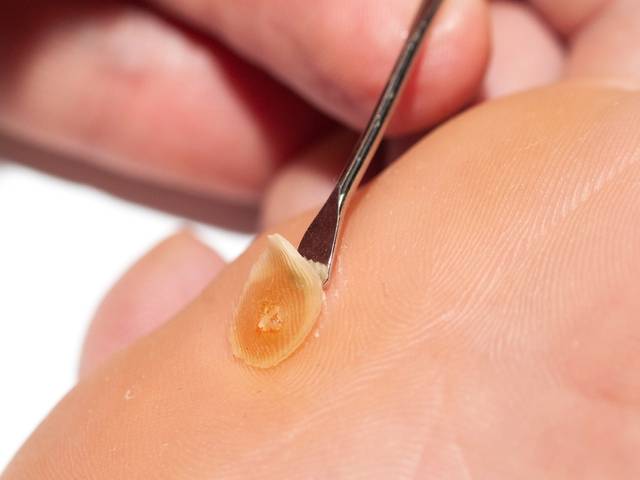Plantar Wart vs. Corn: What’s the Difference?

Plantar warts and corns appear as small bumps on your feet, but these common growths have different causes and treatments. You might be wondering how to tell them apart. The board-certified dermatologists at Dermatology Treatment and Research Center have treated countless patients for both corns and warts. Here are some of the key differences.
What Does a Corn vs. a Plantar Wart Look Like?
A plantar wart (or verruca) usually forms on the bottom of your feet. They can develop in clusters and cause pain when walking or standing. Plantar warts disrupt the regular skin pattern on your foot. The rough growth usually has visible tiny brown or black pinpoints in the center. These dots are clotted blood vessels that supply the wart with nourishment.
On the other hand, foot corns don’t have any pinpoints in the center. These hard, lighter-colored foot calluses can look and feel similar to warts. However, they tend to appear on areas of the feet where you put a lot of pressure or friction, like the pinky toes, heels, or balls of the feet.
Plantar Wart Treatments vs. Corn Treatments
Plantar warts and corns have different causes, but the first line of treatment is usually the same. Both typically respond to over-the-counter salicylic acid solutions. These treatments help slough away dead skin, reducing the size of corns and drawing your immune system’s attention to warts. It’s important to wear gloves while treating warts since they’re caused by a strain of human papillomavirus (HPV) that can spread to the hands.
If salicylic acid treatments don’t get rid of your warts, cryotherapy with liquid nitrogen may be able to freeze off the infected tissue. A dermatologist can also provide prescription topicals, laser treatments, or surgical excision for stubborn or persistent warts.
When treating corns with salicylic acid, you should file down the bump with a pumice stone after baths or showers. In addition, wearing shoe inserts can reduce pressure on your feet and prevent new corns from forming. You can also see your dermatologist for corn removal, which may involve shaving down the callus.
Schedule Your Dallas Wart Removal Appointment
If you have an unusual growth on your foot, visit the board-certified dermatologists at Dermatology Treatment and Research Center for a diagnosis. Prompt treatment can prevent warts from spreading and reduce the discomfort corns can cause. Call 972-661-2729 to book your appointment at Dermatology Treatment and Research Center in Dallas, Texas.